Estados Unidos/09 de Junio de 2018/Gestión
La xenofobia priva al país del talento que necesita para tener éxito. Si se les da la oportunidad, los inmigrantes de cualquier país del mundo se convertirán en estadounidenses patrióticos, al igual que sus descendientes.
El 6 de junio de 1944, soldados estadounidenses tomaron por asalto las playas de Francia, comenzando una campaña que revertiría el control de la Alemania nazi sobre Europa occidental. Fue una demostración sin precedentes del poderío militar y la destreza organizacional de Estados Unidos.
El hombre que dirigió ese heroico esfuerzo era de ascendencia alemana: el general y futuro presidente Dwight D. Eisenhower. La familia de Eisenhower, que cambió la ortografía del nombre original Eisenhauer (que significa «minero de hierro»), era originaria de un área llamada Nassau-Saarbrücken, irónicamente, uno de los territorios que el general liberaría.
Si EE.UU. hubiera sido en 1944 el mismo país que era en 1917, es posible que no hubiera habido un estadounidense de ascendencia alemana a la cabeza. Conforme EE.UU. se preparaba para luchar contra Alemania en la Primera Guerra Mundial, el sentimiento anti-alemán dominaba la nación.
Las escuelas dejaron de enseñar alemán, los ciudadanos germano-estadounidenses fueron hostigados y despedidos de sus trabajos y 6,000 alemanes y germano-estadounidenses fueron enviados a campos de detención. Parece inconcebible que se le hubiera permitido a un general de ascendencia alemana dirigir el ejército estadounidense contra la patria ancestral de su familia en 1917.
Y sin embargo, apenas 27 años después, esa imposibilidad se había convertido en realidad.
Esta anécdota ilustra un principio central de la historia estadounidense. Cuando EE.UU. acoge a personas de todas las razas y etnias, no solo es justo y equitativo, es eficiente.
La xenofobia priva al país del talento que necesita para tener éxito. Si se les da la oportunidad, los inmigrantes de cualquier país del mundo se convertirán en estadounidenses patrióticos, al igual que sus descendientes.
Desafortunadamente, muchos en EE.UU. nunca han incorporado esta lección. Por un tiempo, parecía que gran parte del país había dejado atrás la xenofobia, especialmente con la disculpa formal y las reparaciones por el internamiento de nipones-estadounidenses durante la Segunda Guerra Mundial.
Recientemente, sin embargo, el miedo irracional a los extranjeros parece estar regresando a la política de EE.UU. El arresto y detención de ciudadanos estadounidenses, en su mayoría de ascendencia hispana, por parte del Servicio de Inmigración y Control de Aduanas (ICE, por sus siglas en inglés) no es solo una injusticia, sino una señal ominosa para EE.UU.
Ahora, la administración del presidente Donald Trump anunció planes para restringir los permisos para que estudiantes chinos estudien en el país. Las visas de los estudiantes graduados chinos que trabajan en robótica, aviación y fabricación de alta tecnología estarán limitadas a solo un año y las autorizaciones para visas serán más difícil de obtener.
El objetivo aparente de estas restricciones es prevenir el espionaje industrial chino. China roba grandes cantidades de propiedad intelectual a las compañías estadounidenses, privando a esas cempresas de su ventaja competitiva, lo que tiene como resultado menos empleos y menores salarios en EE.UU.
Es un problema serio y representa una debilidad que enfrentan las sociedades abiertas cuando compiten con naciones cerradas y administradas de manera centralizada.
Pero mantener alejados a los estudiantes chinos es la forma incorrecta de enfrentar el problema. Como escribe mi colega deBloomberg Opinion Adam Minter, los inmigrantes chinos altamente calificados son un importante motor de la prosperidad estadounidense. En la última década, el número de estudiantes chinos en EE.UU. ha aumentado:
Estos estudiantes pagan altas tasas de matrícula que ayudan a subsidiar la educación de los estadounidenses nativos. También son investigadores increíblemente productivos, generando resultados científicos hasta un 30% más altos que otros estudiantes.
Y la gran mayoría de estos individuos brillantes tienden a permanecer en EE.UU. después de graduarse, trabajando para aumentar la prosperidad estadounidense y contribuyendo al talento de la fuerza laboral nacional.
La ofensiva de Trump contra los estudiantes chinos debe verse como parte de una iniciativa más amplia -y altamente contraproducente- de restringir la inmigración de personas altamente calificadas a EE.UU.
Pero más allá de los beneficios materiales que EE.UU. obtiene de los estudiantes y trabajadores chinos, permitirles el ingreso preserva los ideales básicos de la nación. China es una sociedad increíblemente represiva y eso aumenta cada vez más.
El país está tratando de implementar la vigilancia universal, y recientemente experimentó un sistema de «acreditación social» salido de un espectáculo de ciencia ficción distópico, negando a la gente viajes en tren y en avión e incluso entregando menor velocidad de internet si son identificados por mal comportamiento.
Ese tipo de opresión es lo que EE.UU., al menos en teoría, creó para oponerse. Escapar a eso, y disfrutar de más libertad personal en general, es probablemente una gran razón por la cual los chinos envían a sus hijos al extranjero.
Negar esa esperanza de escape y libertad no solo sería como dispararse en el pie en términos económicos para el país, sino que también mermaría la reputación de EE.UU. como un modelo de libertad y oportunidad.
En lugar de excluir a los estudiantes y trabajadores chinos, EE.UU. debería reclutar más y hacer todo lo posible para mantenerlos en el país permanentemente.
El robo de propiedad intelectual es un problema, pero el país debería atacarlo presionando directamente al gobierno chino, no a las personas que intentan escapar de ese gobierno.
Si Trump consigue cerrar las puertas, se arriesga a impedir la existencia de muchas futuras generaciones de chinos-estadounidenses patrióticos y brillantes, toda una legión de futuros Eisenhowers.
El espionaje es una ventaja de las sociedades cerradas, pero la inmigración es una ventaja aún mayor de las abiertas. A la larga, quedarse con las personas será más poderoso que quedarse con las ideas.
Fuente: https://gestion.pe/economia/management-empleo/trump-cierra-puertas-inteligentes-mundo-235200
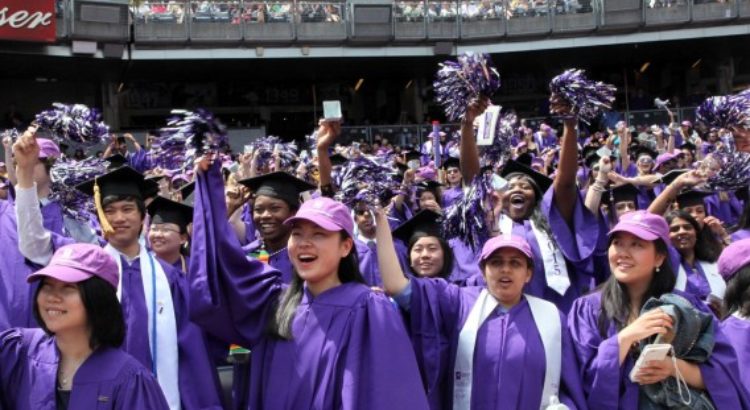
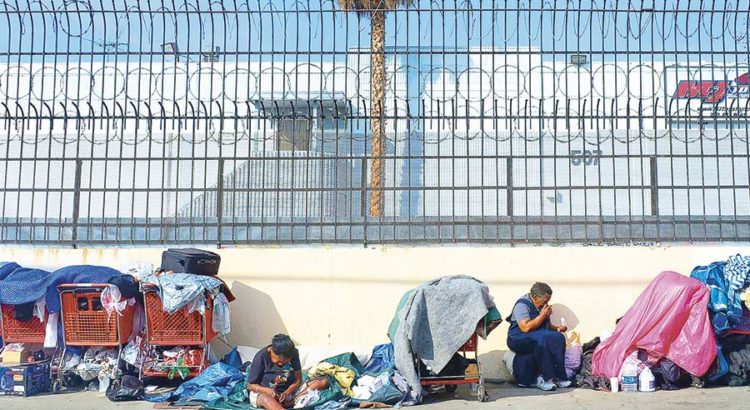

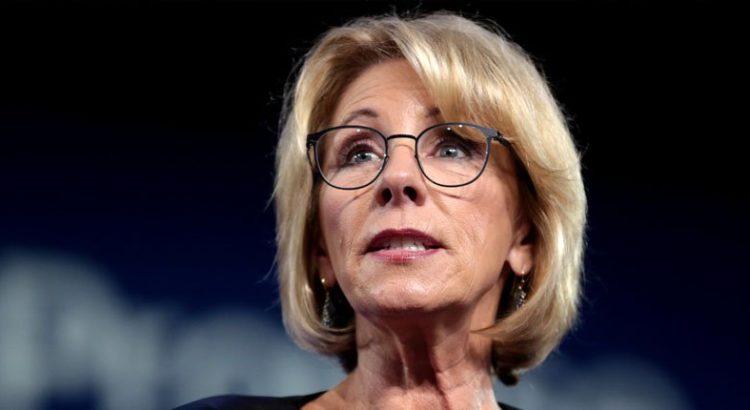

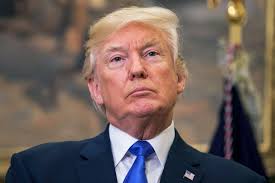
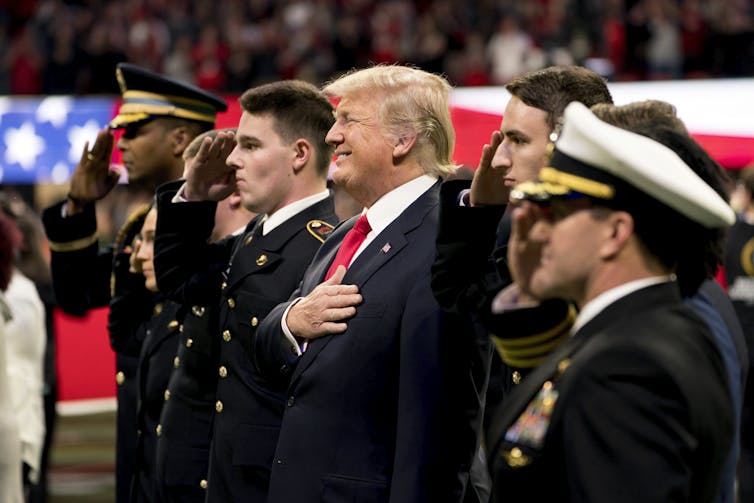







 Users Today : 27
Users Today : 27 Total Users : 35460484
Total Users : 35460484 Views Today : 48
Views Today : 48 Total views : 3419343
Total views : 3419343